For those in the business of trying to drive organic traffic, Google is all-powerful. It crawls the web, determining which pages are the most useful and relevant for its users for virtually any topic. We don’t just trust Google’s results, we rely on them.
With such immense power and influence, getting your small business on the first page of Google might seem unrealistic, however, it this very power Google holds that makes it more possible than ever for small and local businesses to rank high in search results—for free!
If you are a locally focused business, you must tap into the power of local search. However, before you can do that, you need to know how to implement effective local SEO.
According to research, up to 70% of small businesses do not have an SEO strategy. If you can put both strong overall SEO and thorough local SEO in place, you will gain a competitive edge when it comes to winning new clients and appearing in search.
And guess what? Laying the foundations of solid local SEO is not hard once you know what to do.
If you’re ready to rise in those local searches, then keep reading as we share with you 12 top tips for being on the first page of Google local search
1. Create a Google My Business (GMB) Listing
One of the first steps to take if you want to rank in local searches is to set up a Google My Business (GMB) listing. One of the reasons to have a Google My Business listing is because its modern-day the equivalent of being listed in the yellow pages
The second is that it’s an important ranking fact. According to Moz’s most recent annual study, Google My Businesses listings are the #1 influencing factor when it comes to local SEO.
Additionally, setting up a GMB listing is not all that hard to do. However, you do need to ensure that you fill out your profile in full. Google supplies you with a visual that indicates how complete your profile is. Make sure you get this metric to 100% by filling in all the fields.
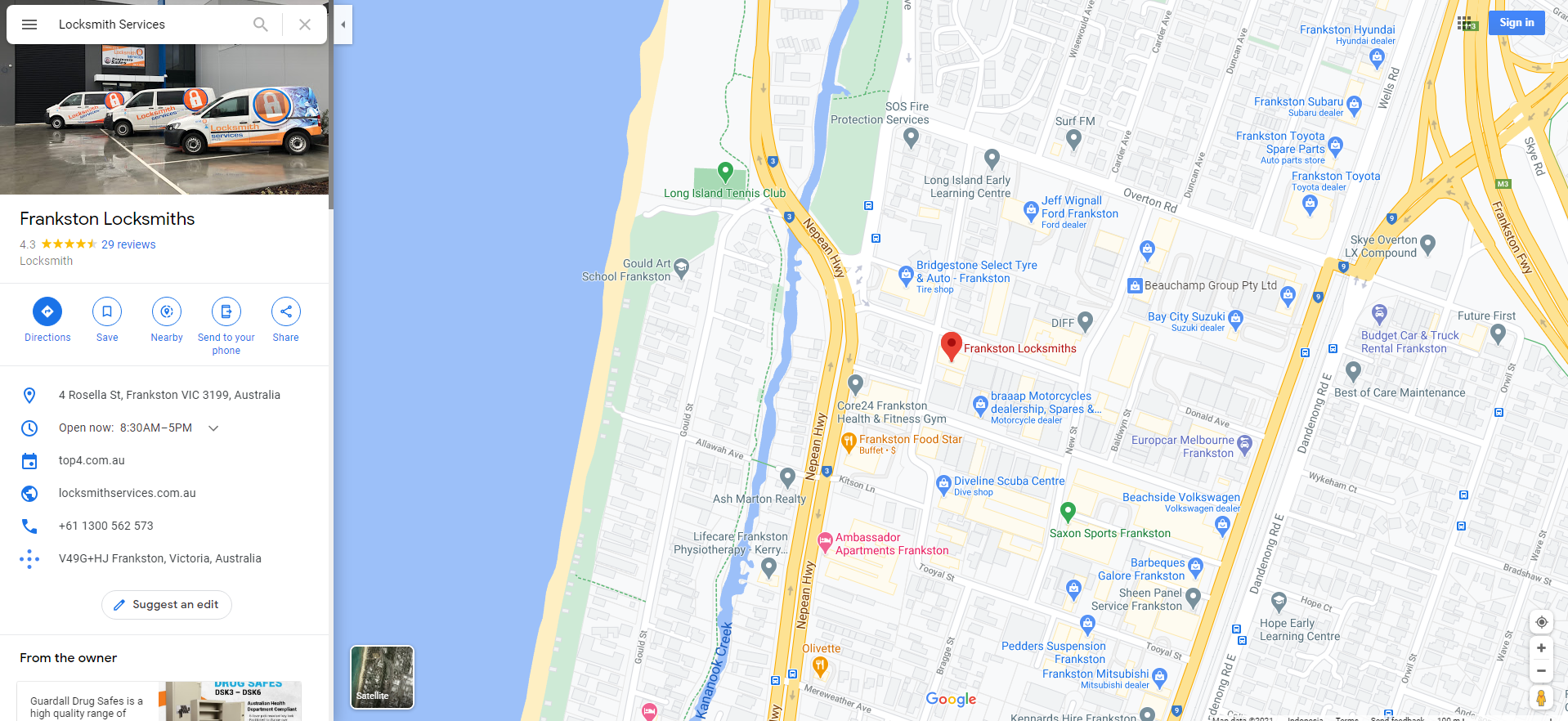
Additionally, ensure that you list your products, services, and a secondary business category. Google will ask you to specify a main category from a preset list of options. Once this is done, you can also select a secondary category, something many businesses fail to do and which gives more context to your services.
Besides this, leveraging the subcategories will also help you rank higher on Google Maps.
Once you have your listing up, another top local SEO tip is to use the Google Posts feature. Here you can create mini-posts for your clients and show Google that you are actively managing your listing. To make this feature one step further, share these posts on social media.
Google is giving increasing weight to social media presence. If you get traffic to your Google Posts page, this shows Google that you are offering valuable content and updates.
2. List Your Business in Other Directories
Besides creating a Google My Business listing, you should also list your business in other online directories. You will find this tip in almost any local SEO guide, as it’s a powerful SEO factor.
Some main directories you can target are:
- Top4
- Yelp
- FourSquare
- Angie’s List
- Bing Places
- HotFrog
- Best of the Web
- About Us
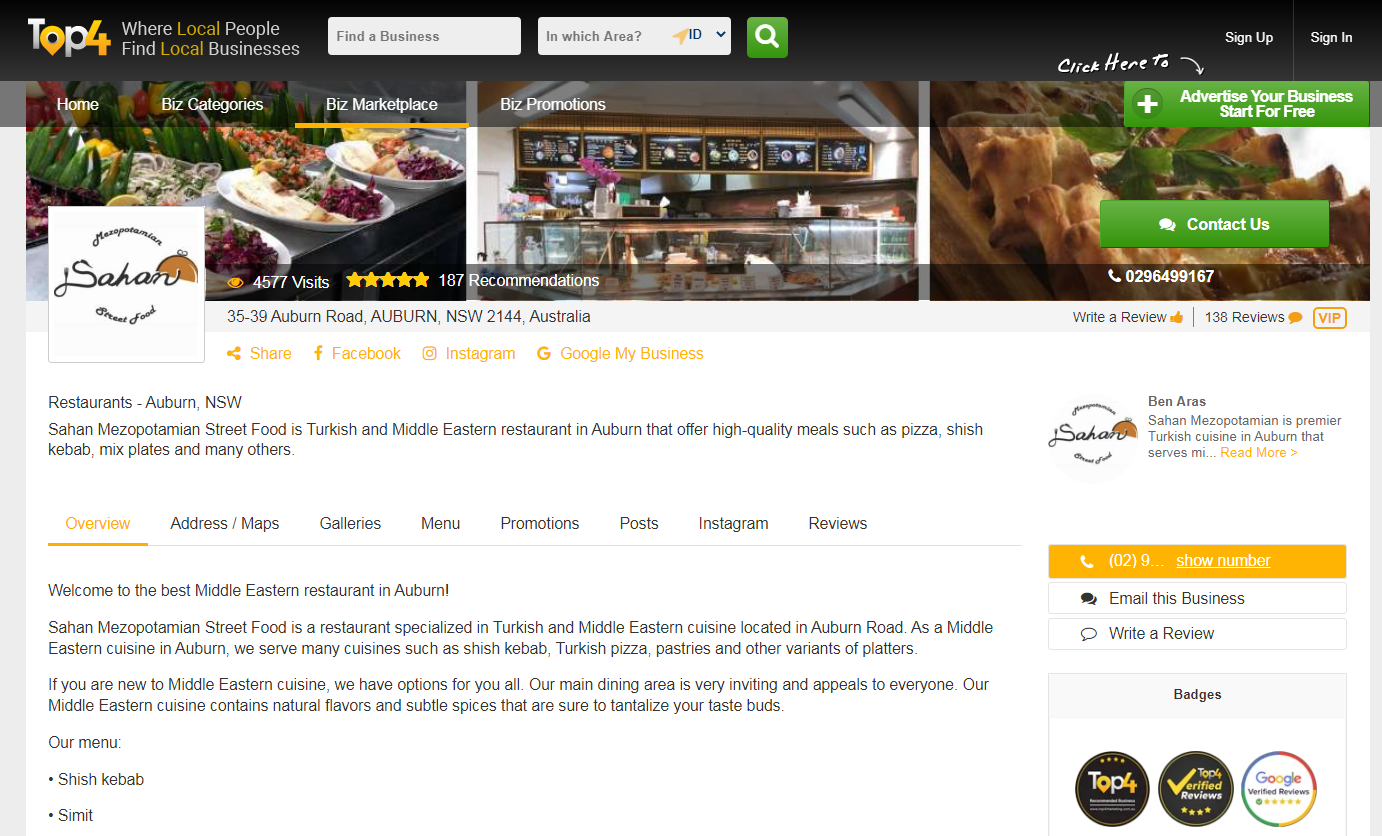
Besides these national and global directories, you should also see if there are any online business directories specific to your area. Listings on these will send further local SEO signals to Google.
3. Keep Your NAP Information Correct
While you are creating business listings, you must keep your NAP (name and place) information correct. If all of your listings have your correct information, it’s easy for Google to trust them. If there are discrepancies, Google has no way of knowing which is the correct information
Something like an incorrect telephone number is a red flag, and Google may stop displaying your GMB listing because they don’t know if your business is legitimate.
What’s more, not only must your NAP info be correct, but it must also be consistent. At this point, Google still doesn’t handle variations like avenue vs. ave. well, and might take it for differing information. Therefore, keep your NAP info completely the same if possible.
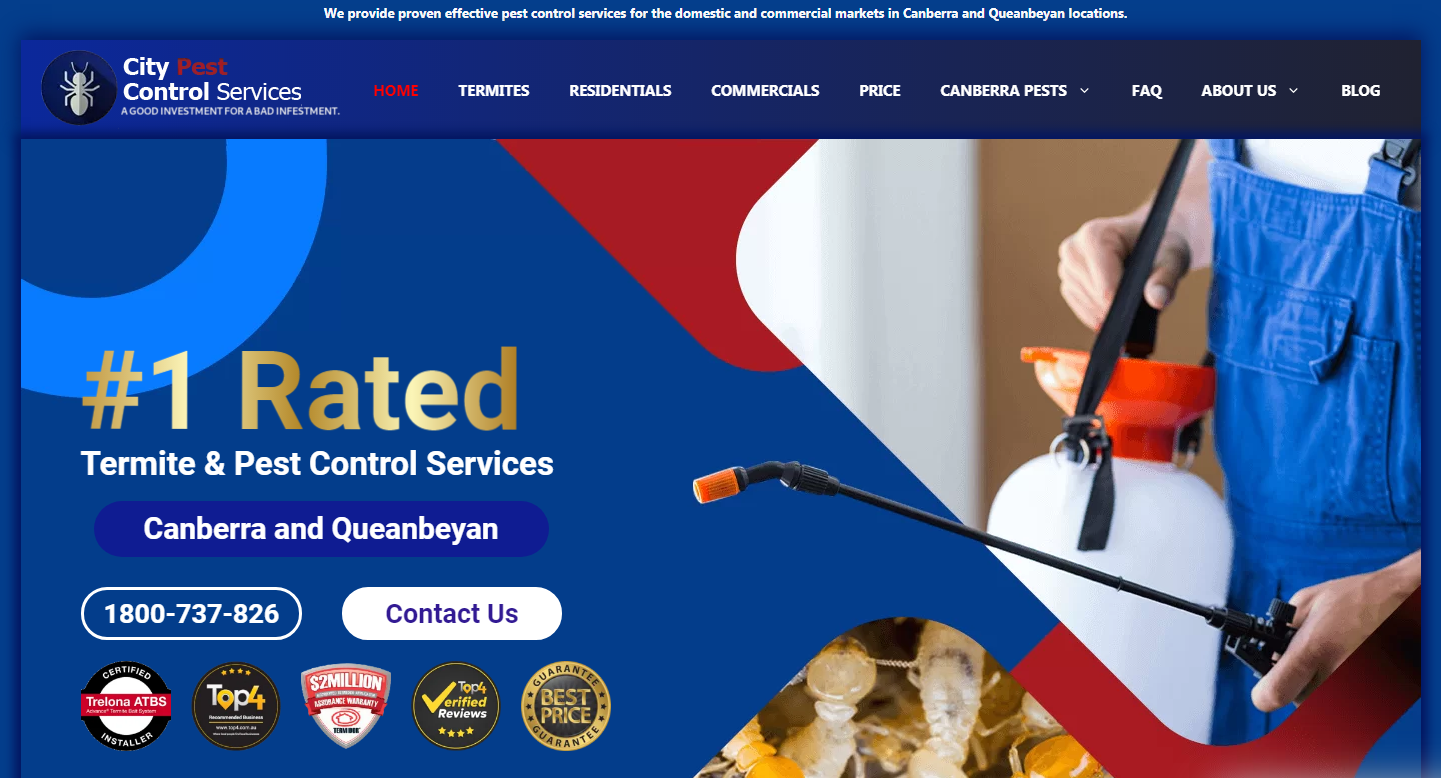
Besides this, you’ll also want to keep an eagle eye on your NAP info in the future. If your business moves, then you should update this across all platforms asap. Additionally, you must monitor your Google My Business listing’s NAP info. Consumers can currently suggest changes to a business’s profile information, and Google may update it based on these.
If a suggestion has been made in error or in an attempt to sabotage you, you’ll want to catch this as soon as possible.
4. Target Local Keywords
One of the basics of local SEO is targeting local keywords. Local keywords are pretty self-explanatory, but you should still research longer tail local keywords for your business.
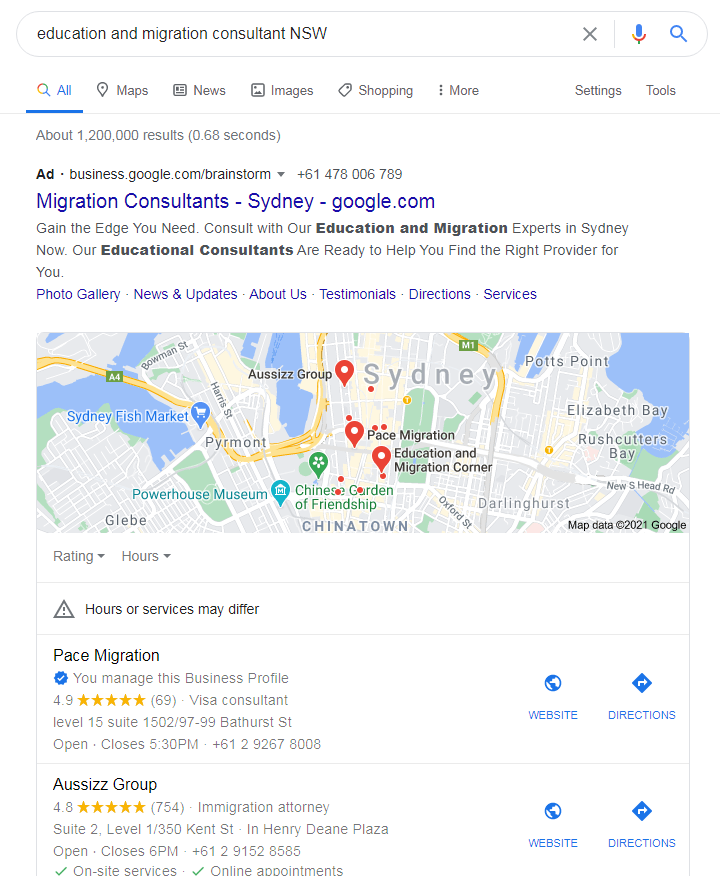
For instance, if yours is a visa consultant company in Sydney, Australia, you’ll want to compare search volumes for different variations of search terms like “education and migration consultant, New South Wales,” “education and migration consultant NSW.” You may also want to drill down into hyper-local keywords, such as “education and migration consultant, sydney.”
5. Optimize Your Site With Local Keywords
Once you have a list of local keywords you want to rank for, the next step is to optimize your site with them. This is a longstanding local SEO tip and is just as important for local SEO in 2021 it was five years ago.
Site optimization is, of course, a whole topic on its own, but here are a few of the onsite local SEO basics.
First off, you want to make sure that your home page and any service pages contain the local keywords you want to rank for in the:
- Headings
- Title tags
- Meta description
- Body
- Footer
If you can, you should also try to incorporate your main local keyword into the URL when possible. When incorporating keywords, make sure that you use them naturally and do not keyword stuff.
6. Create Local Content
Let’s be honest; no SEO guide for 2021 would be complete without a section on local content.
Most content marketing strategies focus on non-local content. While this will net you a wider audience and higher traffic levels, if you are a locally focused business, this is not going to help you. If you want to maximize your content marketing efforts for enhanced lead generation, it’s essential that you also create local content.
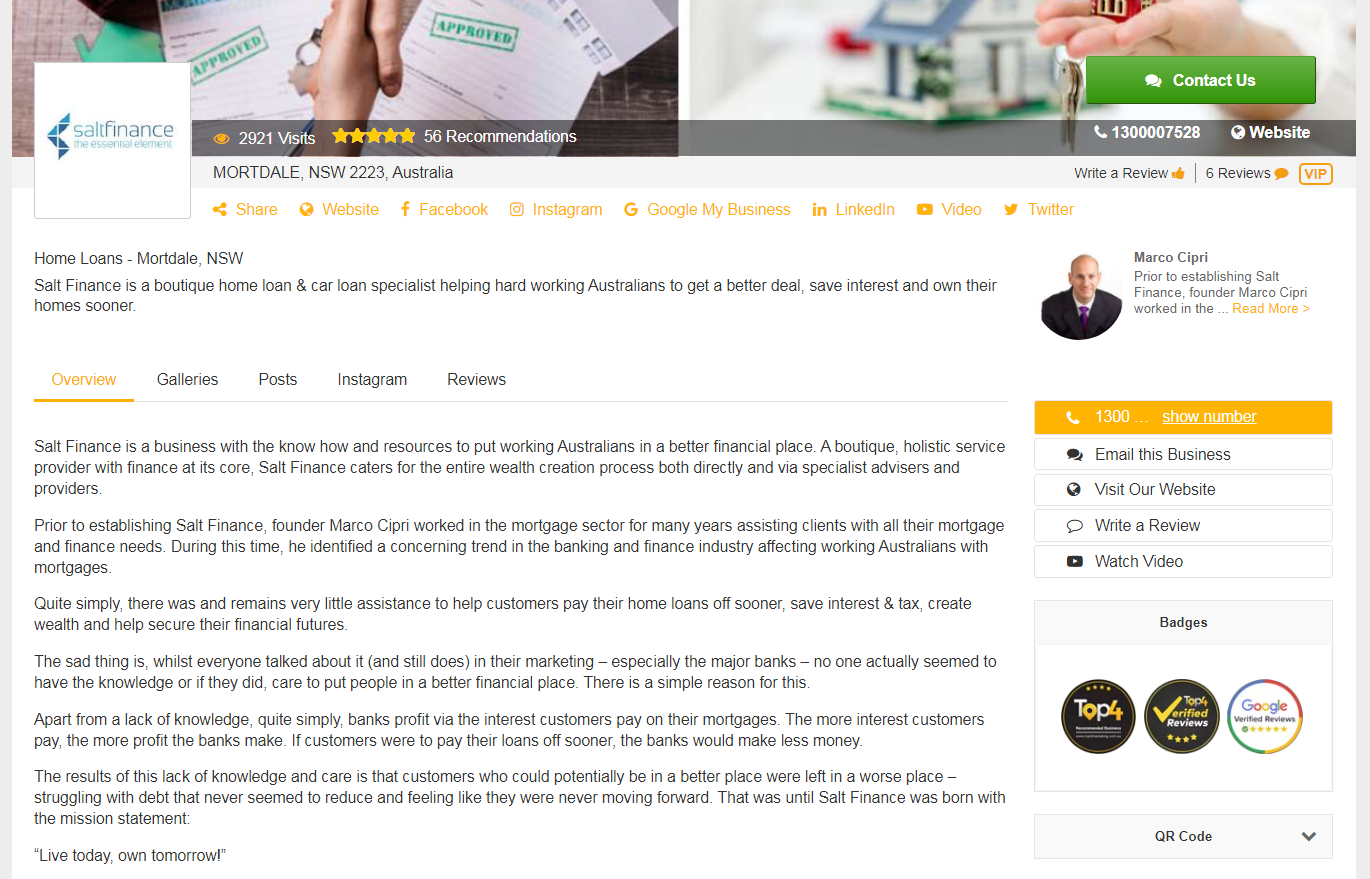
There are various topics you can create local content around. You can relate local content to your offerings by incorporating local keywords. If you are a cater, an example of this could be a blog post on how to find the best caterer in your area. This allows you to naturally incorporate local keywords into the content.
Besides posts like this, you can also create content around local news and events in your industry
7. Optimize For Mobile
Another of the top local SEO tips for 2021 is optimizing your site for mobile.
Making your website mobile-friendly is essential for good SEO in general. However, it’s specifically important for local SEO. Here’s why.
According to stats, 30% of all mobile searches are location-related. This is a significant number, and it means that a lot of consumers who find you on local search are likely on their mobile device.
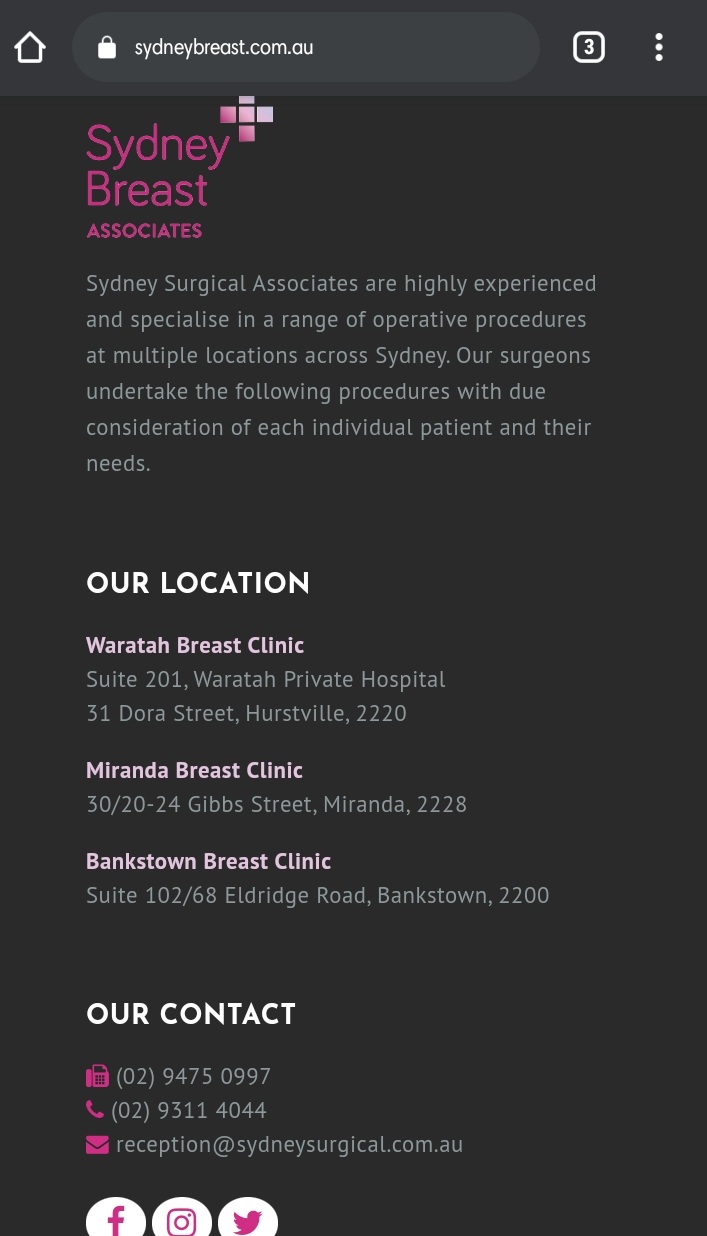
If your site does not display well on mobile, or there are navigation issues, this won’t look good to potential customers. They will likely move off your site and go with a competitor who’s online presence looks more professional.
8. Optimize For Voice
Along with optimizing for mobile, you should also optimize for voice searches. Research shows that mobile voice searches are 300% more likely to have local intent than text searches.
As it’s still relatively early days in the voice search era, many businesses have not yet optimized their site and content for voice. This gives you a great chance to be ahead of the pack and stand out from your competitors.
9. Take Time To Build Inbound Links
Inbound links are an important ranking factor that can boost both traditional and local SEO.
Building backlinks isn’t a plug-and-play activity, but there are a few tried and tested methods you can implement. One of these is to contact people in your industry with who you have a relationship. These can include contractors, suppliers, distributors, neighbouring businesses, partners, and wholesalers.
Start by making a list of these businesses. Then, optimize your process by searching for pages on their sites where you could place a contextual link. From here, you can contact the businesses on your list and suggest the link placements.
Another way you can generate contextual inbound links is through guest posting. If the businesses on your list have a blog, you can offer to create content for them that includes a link to your site.
In some cases, you can also look into building backlinks from larger sites such as Forbes.
10. Look Into Location Pages
Does your business serve multiple locations? If so, you want to make sure you are ranking in local searches for all of these locations.
The way to do this is by creating location pages. For instance, say you offer services in Houston, San Antonio, and Austin. Instead of having one service page that lists these locations, create a service page for each city.
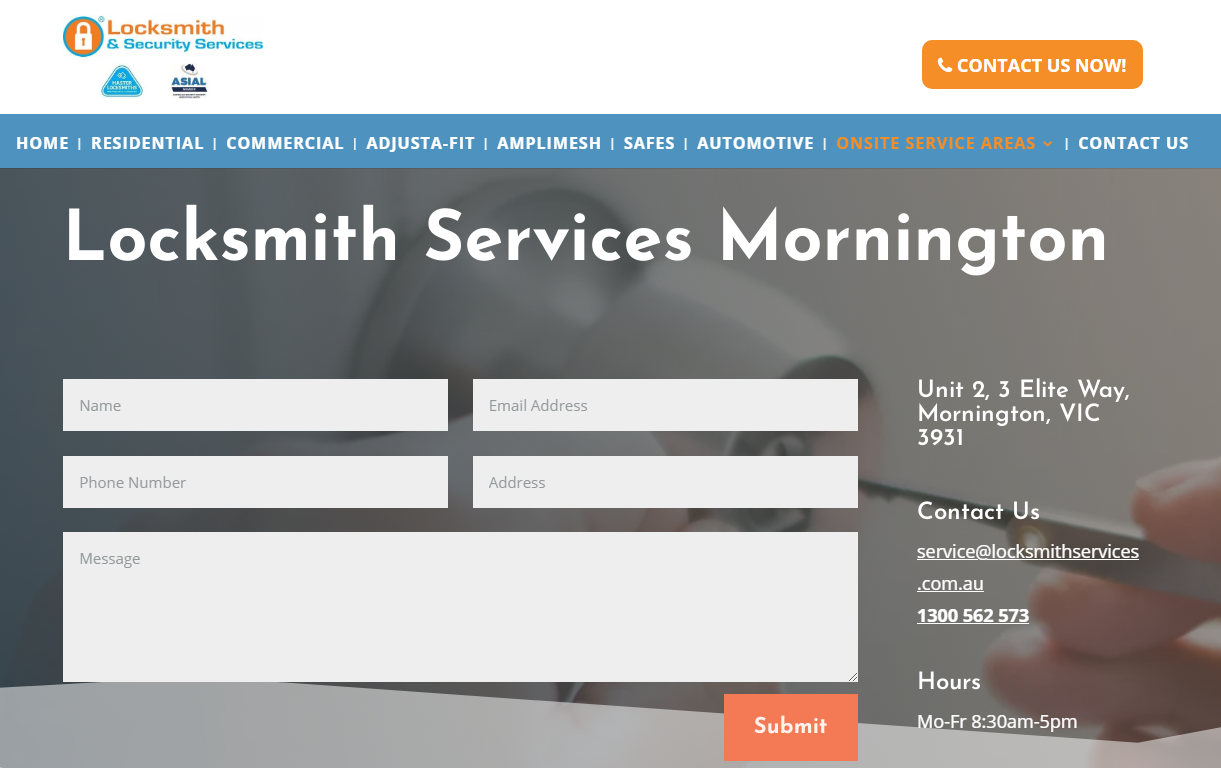
These pages should be optimized for local search terms. They also need to have unique content. If you use the same content for all your location-based service pages, this will show up as duplicate content on Google and affect your page rankings and domain authority.
11. Manage Your Reviews
Another Google My Business tip that is vital for good local SEO for 2021 is managing your Google reviews.
Positive reviews are inarguably good for your business reputation, and they can also boost your authority in Google’s eyes. On the other hand, bad reviews can negatively impact how Google displays your listing and site pages in search.
Of course, there is not much one can do to stop negative reviews from happening besides optimizing your customer service as much as possible. However, one thing you can do something about is the way you manage negative reviews. According to Moz’s study, responding to negative reviews with the object of resolving them is a plus sign to Google.
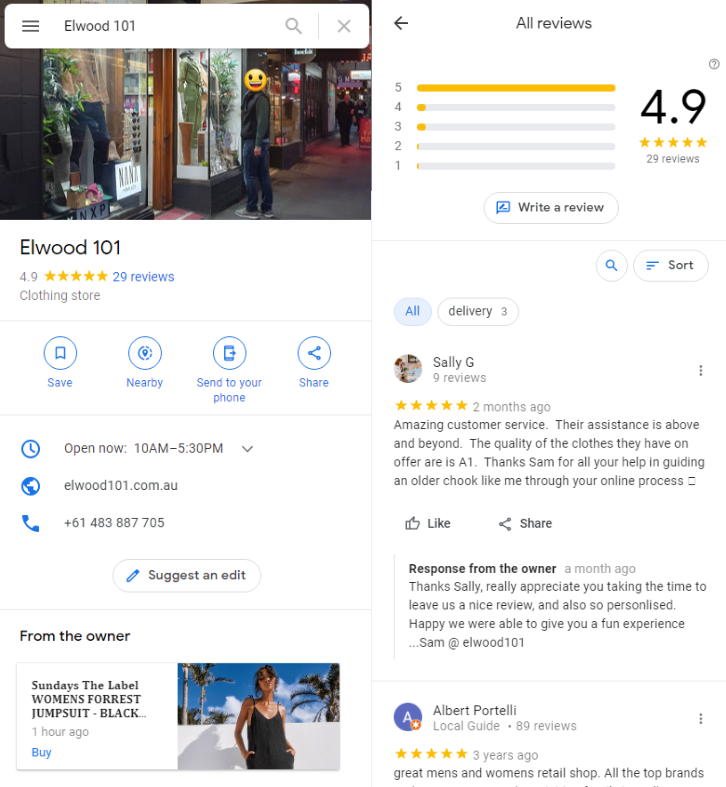
It shows the search engine that you are actively managing disputes, listening to your customers, and doing your best to enhance their experience with you.
Besides this, responding to negative reviews also gives you a chance to retain customers you might have lost and build relationships. It also shows other consumers that you are committed to making your customers happy.
Along with this, you can also use negative reviews to your advantage by creating content around them and incorporating common keywords in your overall SEO strategy.
In conclusion, make it a point to attend to all reviews, both positive and negative.
Lastly, don’t forget to manage reviews across all platforms and listings. Although Google reviews may have the highest weight with the search engine, it is very likely that it also factors in reviews (and your responses) on other platforms, such as Yelp, Angieslist, etc.
12. Don’t Focus Only On Local SEO
Our final tip in this SEO guide for 2021 is to not forget about traditional SEO. While local SEO is vital for most physically-based businesses, traditional SEO is still important.
For one, Google itself has confirmed that rankings in organic SERPS are a factor in local SEO.
What’s more, a lot of the components of traditional SEO can derail local SEO if they are not implemented.
For instance, page speed optimization is a key player in general SEO. If a consumer lands on your site through a local search, but the page does not load, guess where they are going to head? Probably off your site and on to your competitor’s.
To find out how we can help you with your Website + Marketing, using our unique location marketing platform called Top4, get in touch today www.top4marketing.com.au
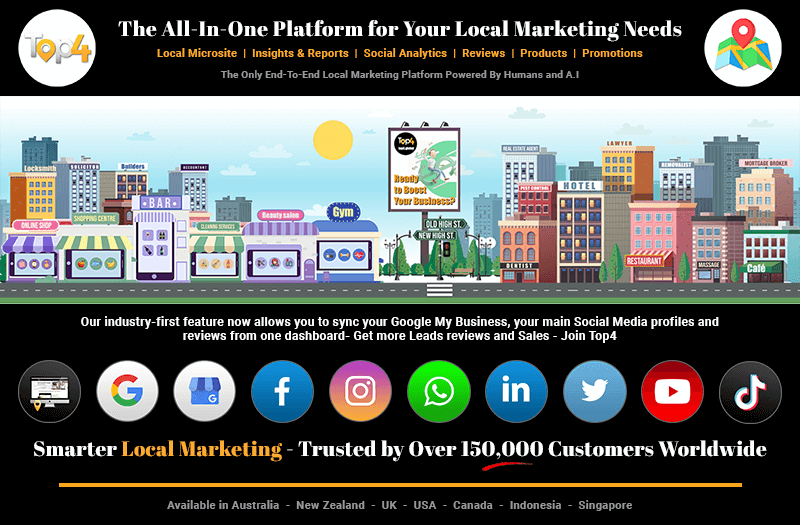
Looking to build customer loyalty through social media? Don’t forget to add your business to Top4.com.au
List your business, create your own digital store to sell goods and services, and share posts on social media. Promote your business on Google instantly! Should you need help with local digital marketing then view our new Google Marketing Platform and services Top4 Marketing
Get Found On Google Promote Your Website, Reach local customers today!
Our Digital Marketing Agency Services Across All Industries Include Search Engine Optimisation (SEO), Google Marketing, Website Design, Corporate Web Development, and local location-based marketing using our own Google Marketing Platform!
Engage A Social Media Agency For Only 1/3 The Cost Of Employing A Social Media Manager…LET’S TALK!
Source: socialmediatoday




